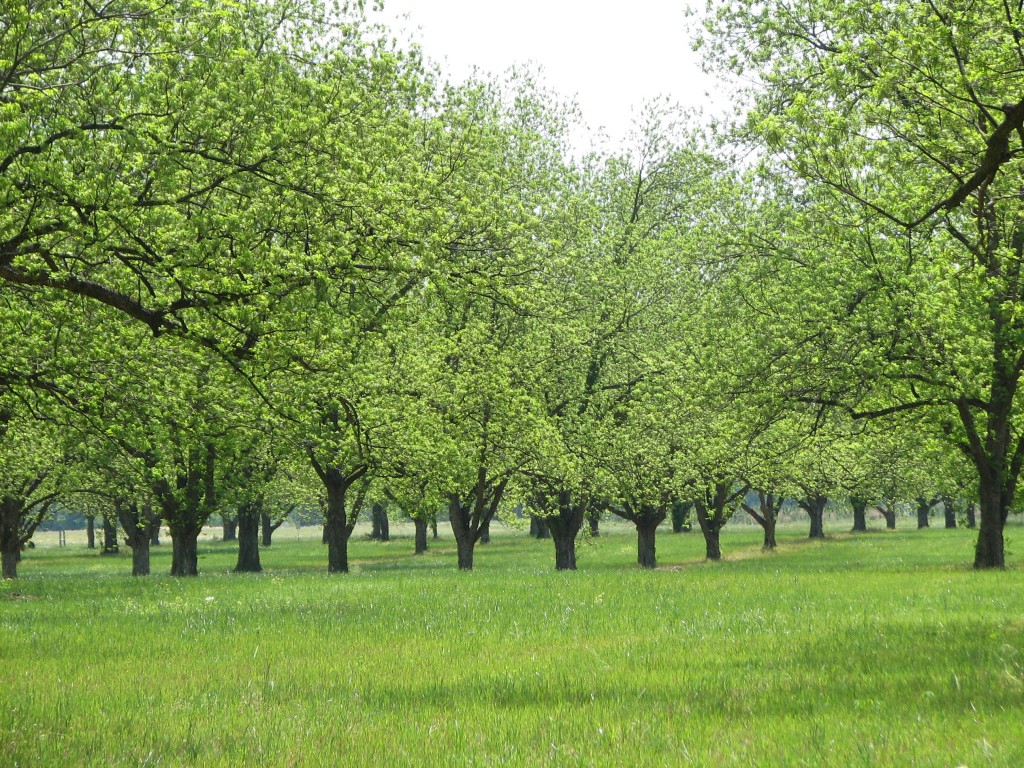We have been seeing and hearing about damage from May beetles around the state. I saw some damage in the Southeast District this week as well. Since the adult beetles feed at night, it’s difficult to be sure what is going on. You see the typical chewing damage on the leaves and terminals (Figs. 1 and 2) — something from an adult beetle, caterpillar or grasshopper. May beetle damage is unpredictable and isolated. We will not see this in every young orchard.
The adults (Fig. 3) feed on leaves and small stems on many hardwood hosts in our region. There are situations where May beetles have completely defoliated a tree in late spring (Fig. 2). These are the same beetles that feed on roots of grasses when they are in the larval stage (grubs). They are likely to be more common when surrounded by uncultivated land or pasture land.
Their lifecycle in GA is usually one year but can be as many as four years, but they actually spend most of it in the larval stage. Adults are active for a few weeks in late spring, feeding, mating and laying eggs in the soil. This is why their damage (from adults) is confined to early season in pecans. There are more than a dozen species, most in the genus Phyllophaga, that may feed on pecan.
Treatment
Like other insects on young pecan trees, May beetle treatment is a shotgun approach. Though research has shown that pyrethroids work well on adult May/June beetles, it is not a good option at this time. Imidacloprid would be a better choice thinking about natural enemies. Heavy feeding on young (first or second year) trees can cause serious reduction in growth, but light feeding on larger trees is not really worth treating. The feeding only lasts a short while and the trees will grow out of the damage quickly with proper management. As bad as the trees in Fig. 2 look, they recovered in just a couple of weeks.



Authors: Andrew Sawyer, Angel Acebes-Doria, Will Hudson
